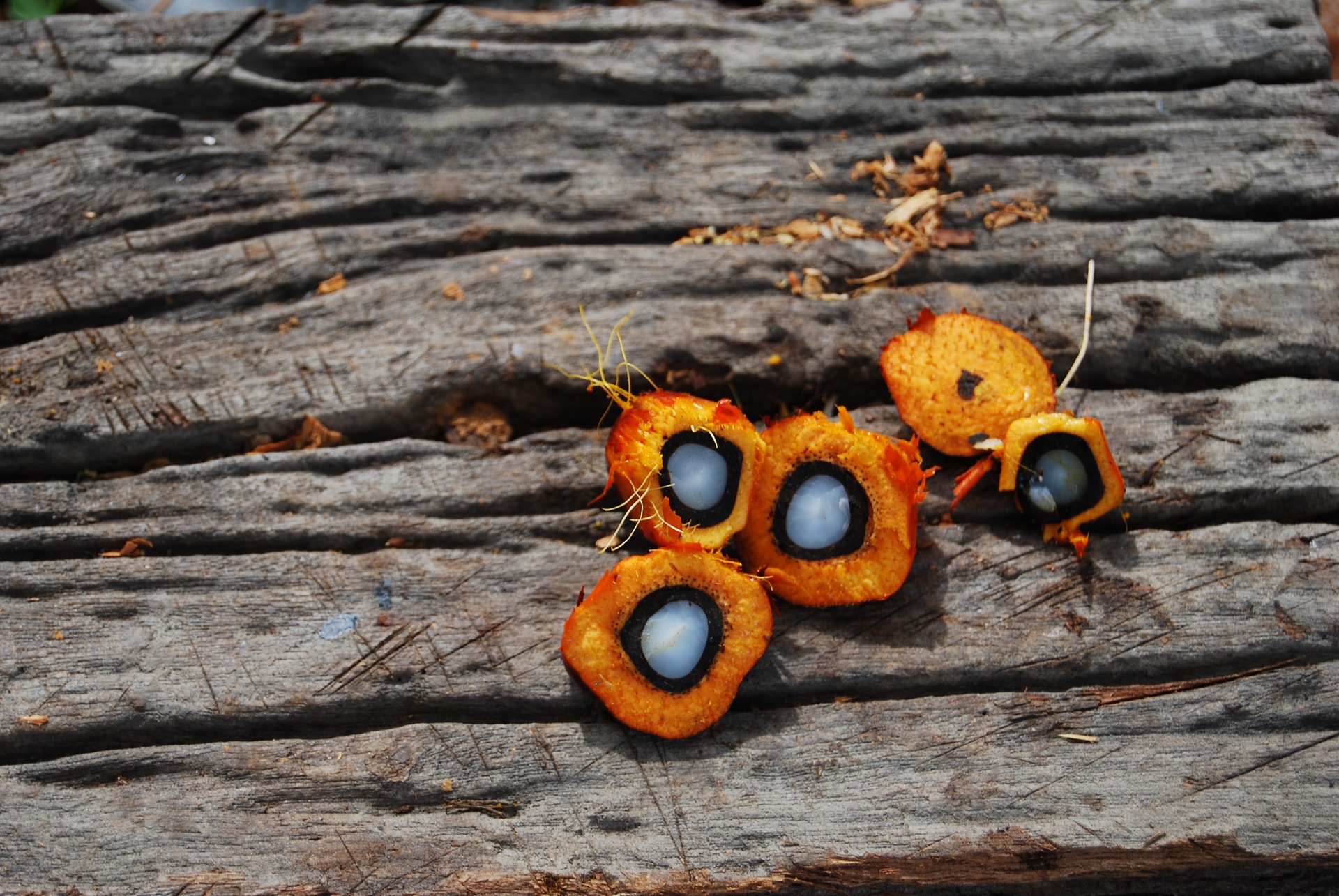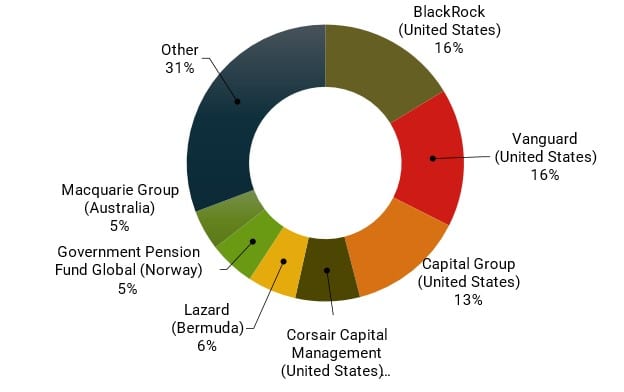- Blog
- Forests
- Land Grabbing, Forests & Finance
- Fighting to Win: How an Indonesian Land Defender Stood up to Conflict Palm Oil
Fighting to Win: How an Indonesian Land Defender Stood up to Conflict Palm Oil

Donate Now!
Your contribution will benefit Friends of the Earth.
Stay Informed
Thanks for your interest in Friends of the Earth. You can find information about us and get in touch the following ways:
by Gaurav Madan, senior forests and lands campaigner
As industrial agribusiness companies raze the world’s last standing forests and accelerate the climate crisis, land defenders are fighting back. Monoculture plantations are responsible for clearcutting great swaths of forests, threatening the survival of communities and biodiversity. Resistance to this destruction is part of a global effort to protect the planet for future generations.
In 2020, after 15 years of battling a palm oil company that violently grabbed his land, Indonesian farmer Franz Hemsi received recognition of his rights over 20 hectares (about 50 acres). His journey has been an arduous one. He’s had his land stolen from him. He’s been jailed three times. He’s endured death threats. But throughout it all, Hemsi maintained an unwavering belief in justice.
In 2005, palm oil company PT Mamuang – a subsidiary of Astra Agra Lestari (AAL), Indonesia’s second largest palm oil company – began operating in Central Sulawesi, Indonesia, digging trenches between the area it claimed and land owned and managed by local communities. The following year, conflict between the company and farmers intensified when PT Mamuang forcibly grabbed land, destroying farmers’ crops, tools and machinery. Farmers fought back, uprooting oil palm trees the company had planted on their land. These events ignited a land conflict that continues to this day.
The company returned to harvest palm fruit in 2010, initiating a clash with the community. When Hemsi stood up for his neighbors, he was arrested and imprisoned for three months. Upon release from jail, Hemsi continued to organize farmers to protect their lands and livelihoods. In 2015, PT Mamuang sent a group of men to intimidate Hemsi and his family. The company built an encampment next to Hemsi’s land and threatened to kill him and his family if they did not leave. When Hemsi filed a police report against PT Mamuang, he was detained for alleged theft and destruction of property. In 2017, Hemsi was once again sentenced to prison, this time for five months and seven days.
AAL is a corporate giant whose parent companies include Astra International — the largest independent automotive group in Southeast Asia — and Jardine Matheson, a British conglomerate headquartered in Hong Kong and incorporated in the tax haven of Bermuda. The AAL group of companies is financed by the world’s largest asset managers, BlackRock and Vanguard, among others. Despite their lip service to sustainability and “climate risk,” both asset managers remain significantly invested in the palm oil industry, which has a sordid history of rampant deforestation, destruction of critical wildlife habitat, labor abuse and violence against local communities and land defenders, like Hemsi.

AAL supplies palm oil to leading consumer brands, including Procter & Gamble, PepsiCo, Unilever, Colgate, Nestle, General Mills, and Danone. These consumer companies categorically fail to protect land defenders or to suspend business with suppliers like AAL, even in the face of grave and ongoing human rights abuses.
New evidence in a forthcoming report by Friends of the Earth US and WALHI details how PT Mamuang and other AAL subsidiaries in Central and West Sulawesi remain embroiled in protracted land conflicts, in violation of national laws and regulations, and implicated in illegal deforestation, forest encroachment, and soil, air, and water pollution.
Hemsi’s struggle did not end with his repeated criminalization by the nexus of state and company forces. In April 2018, Hemsi contacted the Indonesian National Land Agency to register his land in hopes of receiving a formal recognition of his rights. The Agency found that the company had no legal right to operate on Hemsi’s land. Regardless, in December 2018, one day after his wife gave birth to their third child, Hemsi was picked up by police and charged with theft. He was again sentenced to five months in prison.
Unfortunately, Hemsi’s story is not uncommon: violence against land defenders is on the rise. Often, those that stand up to extractive industries are criminalized while complicit consumer companies and investors cower behind empty sustainability commitments. In 2020, at least 227 land defenders were killed worldwide for seeking to protect their traditional lands, with agribusiness being one of the deadliest sectors.
Despite unimaginable setbacks, Hemsi persevered. In 2019 he filed an appeal to the Indonesian Supreme Court, which remains pending. Later that year, with support from the Friends of the Earth network, he traveled to the Netherlands to meet with the financiers behind PT Mamuang and AAL. As a result of his bravery, in 2020, about half of the land grabbed by the company was returned to Hemsi.
While Hemsi’s struggle to regain his stolen land is not over, it serves as inspiration for all of us fighting a predatory economic system that seeks to maximize profits at the expense of people and planet. The consumer companies and investors that remain tied to PT Mamuang and AAL have a responsibility to sever their business relationships until conflicts with communities are resolved, land illegitimately taken is returned, and compensation has been provided to affected farmers
As Hemsi says: “I’m not afraid to fight. The struggle doesn’t end here. As long as I’m still alive, I will continue to fight against injustice. No matter how many threats or subpoenas are sent to me, no matter how many times they put me in jail, I will never stop defending my rights.”
Let Hemsi’s determination serve as an inspired reminder that our struggles for a livable plant are intertwined. As we confront the industries driving endless consumption and destruction of the world’s last standing forests, let’s remember: we are not simply fighting back. We are fighting to win.
